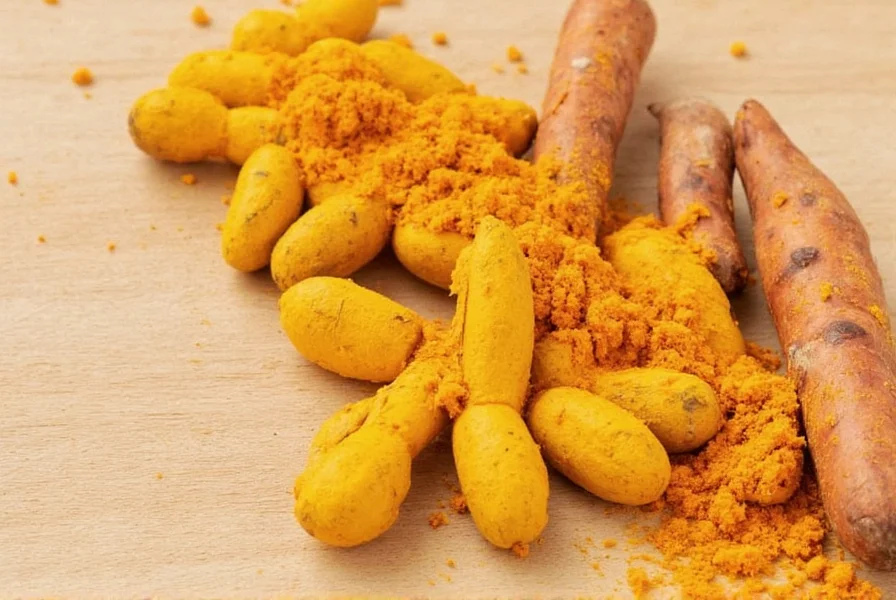For centuries, turmeric has been a cornerstone of traditional medicine systems across Asia. Modern science is now validating many of these traditional uses, particularly regarding the active compound curcumin. As interest in natural health solutions grows, understanding the evidence-based benefits of turmeric supplements becomes increasingly important for informed decision-making.
The Science Behind Turmeric's Power
Curcumin, turmeric's primary bioactive compound, constitutes about 2-8% of most turmeric preparations. This polyphenol delivers potent anti-inflammatory and antioxidant effects through multiple biochemical pathways. Unlike many pharmaceutical anti-inflammatories that target single pathways, curcumin modulates numerous molecular targets simultaneously, creating a broader therapeutic effect.
However, curcumin faces significant bioavailability challenges. Standard turmeric supplements have poor absorption rates, with studies showing less than 1% bioavailability in some formulations. This explains why many early studies showed limited effects—participants weren't receiving sufficient active compound. Modern formulations address this through:
- Piperine (black pepper extract) combinations
- Liposomal delivery systems
- Nanoemulsion technologies
- Phospholipid complexes
| Health Benefit | Research Evidence | Effective Dosage Range | Timeframe for Results |
|---|---|---|---|
| Inflammation Reduction | Multiple RCTs showing 20-40% reduction in CRP and other markers | 500-1500mg standardized curcumin | 4-12 weeks |
| Joint Pain Relief | Comparable to NSAIDs in osteoarthritis studies | 1000mg daily of enhanced bioavailability formula | 8-12 weeks |
| Cognitive Support | Promising early research on BDNF enhancement | 80-500mg daily | 3-6 months |
| Heart Health | Improved endothelial function in multiple studies | 150-200mg daily | 4-8 weeks |
Evidence-Based Health Benefits
Research on turmeric supplements reveals several clinically significant benefits supported by human trials:
Powerful Anti-Inflammatory Effects
Chronic inflammation underlies many modern diseases. A comprehensive review in the Journal of Medicinal Food analyzed 30 clinical trials and found turmeric supplements significantly reduced inflammatory markers like C-reactive protein (CRP) and interleukin-6. The anti-inflammatory potency of high-quality curcumin formulations rivals some pharmaceutical options but without the gastrointestinal side effects common with NSAIDs.

Joint Health and Arthritis Management
Multiple randomized controlled trials demonstrate turmeric's effectiveness for osteoarthritis and rheumatoid arthritis. A landmark study published in Phytotherapy Research compared 1,000mg daily of a specialized curcumin formulation against 1,200mg of ibuprofen. After eight weeks, both groups showed similar improvements in pain scores, but the curcumin group reported significantly fewer gastrointestinal issues.
Cognitive Function and Brain Health
Emerging research suggests curcumin may protect against cognitive decline. Studies indicate it increases brain-derived neurotrophic factor (BDNF), a growth hormone that functions in the brain. Low BDNF levels associate with depression and Alzheimer's disease. While human trials are still limited, a 18-month study in the American Journal of Geriatric Psychiatry showed improved memory and attention in non-demented adults taking 90mg of a bioavailable curcumin formulation twice daily.
Heart Health Potential
Endothelial dysfunction—when blood vessels don't properly dilate—is an early marker of heart disease. Research in Nutrition Journal found that 150mg of curcumin daily improved endothelial function as effectively as exercise in postmenopausal women. The anti-inflammatory and antioxidant properties likely contribute to these cardiovascular benefits.
Important Considerations for Effective Use
Understanding how to properly use turmeric supplements maximizes potential benefits while minimizing risks:
Dosage Guidelines Based on Research
Effective dosing depends on the formulation's bioavailability. Standard turmeric powder requires impractically high doses (8-10 grams daily) to achieve therapeutic effects. Most clinical trials use:
- 500-1,500mg of standardized curcumin extract (95% curcuminoids)
- Or 200-500mg of enhanced bioavailability formulations
Dividing the daily dose into two administrations improves sustained blood levels. Taking turmeric with healthy fats (like avocado or olive oil) and black pepper significantly enhances absorption.
Safety Profile and Potential Interactions
Turmeric supplements demonstrate excellent safety in clinical trials, with most adverse effects being mild gastrointestinal symptoms. However, important considerations include:
- May interact with blood thinners like warfarin
- Potential interference with certain chemotherapy drugs
- Theoretical risk of increased gallbladder contraction
- Limited safety data for pregnant or breastfeeding women
Managing Expectations: What Research Really Shows
While turmeric supplements show promise, it's crucial to maintain realistic expectations. Most benefits require consistent use over weeks or months. Turmeric works best as part of a comprehensive health strategy rather than a standalone solution. The strongest evidence supports its anti-inflammatory effects, particularly for joint health, while other potential benefits require more extensive human research.
Making Informed Supplement Choices
Not all turmeric supplements deliver equal benefits. When selecting a product, consider these evidence-based factors:
- Standardization: Look for products specifying curcuminoid content (typically 95%)
- Bioavailability enhancement: Piperine, liposomal, or nanoparticle formulations significantly improve absorption
- Third-party testing: Certifications from NSF, USP, or ConsumerLab verify label accuracy
- Transparency: Reputable brands disclose exact curcuminoid amounts per serving
Remember that whole turmeric contains other beneficial compounds beyond curcumin. Some high-quality supplements include turmeric essential oils containing turmerones, which may provide additional health benefits through complementary mechanisms.
Conclusion: A Valuable Addition to Holistic Health
Turmeric supplements represent one of the most extensively researched natural interventions with compelling evidence for specific health applications. When selected carefully and used appropriately, they offer a safe, natural approach to managing inflammation and supporting overall wellness. As with any supplement, consult with a healthcare provider familiar with your medical history before starting a new regimen, especially if managing chronic health conditions or taking medications.
Frequently Asked Questions
How long does it take for turmeric supplements to work for inflammation?
Most clinical studies show measurable reductions in inflammatory markers within 4-8 weeks of consistent daily use. For joint pain relief, significant improvements typically appear between 8-12 weeks. The timeframe varies based on the formulation's bioavailability, dosage, and individual factors like baseline inflammation levels.
Can turmeric supplements help with arthritis pain?
Multiple randomized controlled trials demonstrate that high-bioavailability curcumin formulations (1,000mg daily) significantly reduce pain and improve function in osteoarthritis patients, with effectiveness comparable to NSAIDs but with fewer gastrointestinal side effects. The anti-inflammatory properties target multiple pathways involved in joint inflammation.
What's the best time of day to take turmeric supplements?
For optimal absorption, take turmeric supplements with meals containing healthy fats. Dividing the daily dose—half with breakfast and half with dinner—maintains more consistent blood levels. Avoid taking on an empty stomach as this may cause gastrointestinal discomfort in some individuals.
Are there any medications that shouldn't be taken with turmeric supplements?
Turmeric may interact with blood thinners like warfarin, potentially increasing bleeding risk. It might also interfere with certain chemotherapy drugs and diabetes medications. Always consult your healthcare provider before combining turmeric supplements with prescription medications, especially if you have a chronic health condition or upcoming surgery.
How does black pepper enhance turmeric absorption?
Black pepper contains piperine, which inhibits certain liver and intestinal enzymes responsible for breaking down curcumin. Research shows this combination can increase curcumin bioavailability by up to 2,000%. Most high-quality turmeric supplements include 5-10mg of piperine per serving to maximize absorption and therapeutic effects.











 浙公网安备
33010002000092号
浙公网安备
33010002000092号 浙B2-20120091-4
浙B2-20120091-4